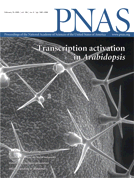Model of Genetic Variation in Human Social Networks
Abstract
Social networks exhibit strikingly systematic patterns across a wide range of human contexts. Although genetic variation accounts for a significant portion of the variation in many complex social behaviors, the heritability of egocentric social network attributes is unknown. Here, we show that 3 of these attributes (in-degree, transitivity, and centrality) are heritable. We then develop a “mirror network” method to test extant network models and show that none account for observed genetic variation in human social networks. We propose an alternative “Attract and Introduce” model with two simple forms of heterogeneity that generates significant heritability and other important network features. We show that the model is well suited to real social networks in humans. These results suggest that natural selection may have played a role in the evolution of social networks. They also suggest that modeling intrinsic variation in network attributes may be important for understanding the way genes affect human behaviors and the way these behaviors spread from person to person.
Authors
- James Fowler
- Christopher T. Dawes
- Nicholas A. Christakis
Bibliography
J.H. Fowler, C. T. Dawes, and N. A. Christakis, “Model of Genetic Variation in Human Social Networks,” PNAS: Proceedings of the National Academy of Sciences, 106(6): 1720-1724 (Feb 2009) DOI: 10.1073/pnas.0806746106
Download Publication
Other Publications in Biology of Social Interactions
- Formation of Raiding Parties for Inter-Group Violence is Mediated by Social Network Structure
- Social Connectedness Is Associated with Fibrinogen Level in a Human Social Network
- Social Networks and Cooperation in Hunter-Gatherers
- Friendship and Natural Selection
- Evolution of In-Group Favoritism
- Correlated Genotypes in Friendship Networks
- Cohort of birth modifies the association between FTO genotype and BMI
